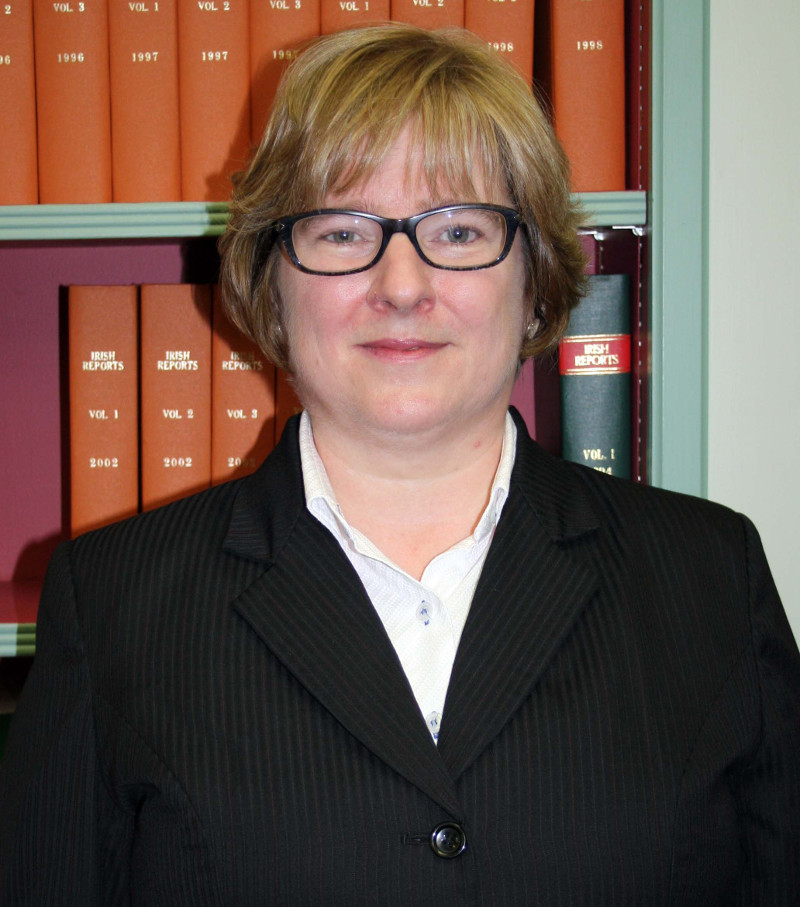High Court expected to give judgment on Poland extradition case next month

Ms Justice
Aileen Donnelly
The High Court is expected to give judgment this month on the proposed extradition of a Polish man to face trial in his native country on drug trafficking charges.
Polish authorities are seeking the surrender of Artur Celmer, 31, who was arrested in Ireland on foot of a European Arrest Warrant. Mr Celmer’s lawyers oppose their client’s surrender over “radical changes” to the Polish justice system, which has put the country at odds with the European Union in recent years.
Following a referral by Ms Justice Aileen Donnelly to the Court of Justice of the European Union (CJEU) in Luxembourg, the High Court was advised that it must assess whether there was a specific risk to Mr Celmer that his fair trial rights would be breached.
Last month, the High Court sought further information from Polish authorities following comments by the Deputy Minister for Justice in Poland, Marcin Warchoł.
Mr Warchoł was quoted in various newspapers describing Mr Celmer as a “dangerous criminal from a drug mafia”. Ms Justice Aileen Donnelly said this and other comments attributed to the Polish minister appeared to have considerable implications for the presumption of innocence.
Ms Justice Donnelly said the politician’s comments were “particularly troubling” given that the role of the Polish Minister for Justice has merged with that of public prosecutor and the Minister had gained disciplinary powers over the presidents of Polish courts.
She said it was necessary to seek further information to allow her assess whether Mr Celmer’s right to a fair trial in Poland was under risk.
In the High Court yesterday, counsel for the Attorney General, Remy Farrell SC, said there was “no solace” to be found for Mr Celmer in the replies from Polish authorities.
While there was a general problem with regards judicial independence in Poland, Mr Farrell said there were no facts to support any specific fear Mr Celmer would not get a fair trial in Poland.
Citing correspondence from the President of the Warsaw Regional Court, Mr Farrell said any statements by politicians were of “absolutely no relevance” because judges in Poland were independent and subject to the Constitution and the laws of Poland.
Citing a number of international authorities, Mr Farrell said there did not appear to be a case where fair trial objections in respect of judicial independence have succeeded.
Counsel for Mr Celmer, Mark Lynam BL, said it was clear that “undue influence” had been brought to bear on the Polish judiciary by the Polish government.
Mr Lynam said his client would be returned to a country where the public prosecutor was callously attempting to control and influence judges in his other role as Minister for Justice. He said judges in Poland would “justifiably” be concerned that the contents of their judgments were likely to put them in “ill favour with the executive”.
There was a real risk of flagrant denial of justice if those pressures could influence the judge in Mr Celmer’s case, Mr Lynam said.
Ms Justice Donnelly said she would reserve her judgment and hoped to deliver it on Monday 19 November. Mr Celmer was remanded in continuing custody until that date.
The Polish government has been accused of interference in the appointment of judges and other “reforms” that the European Commission says have enabled political interference in the composition, powers, administration and functioning of the judiciary.
In December the commission triggered Article 7 of the Treaty on European Union, calling on Poland to rectify attacks on the impartiality of the judiciary. That process is ongoing amid widespread criticism of changes to the Polish legal process.
Ruaidhrí Giblin, Ireland International News Agency Ltd.






